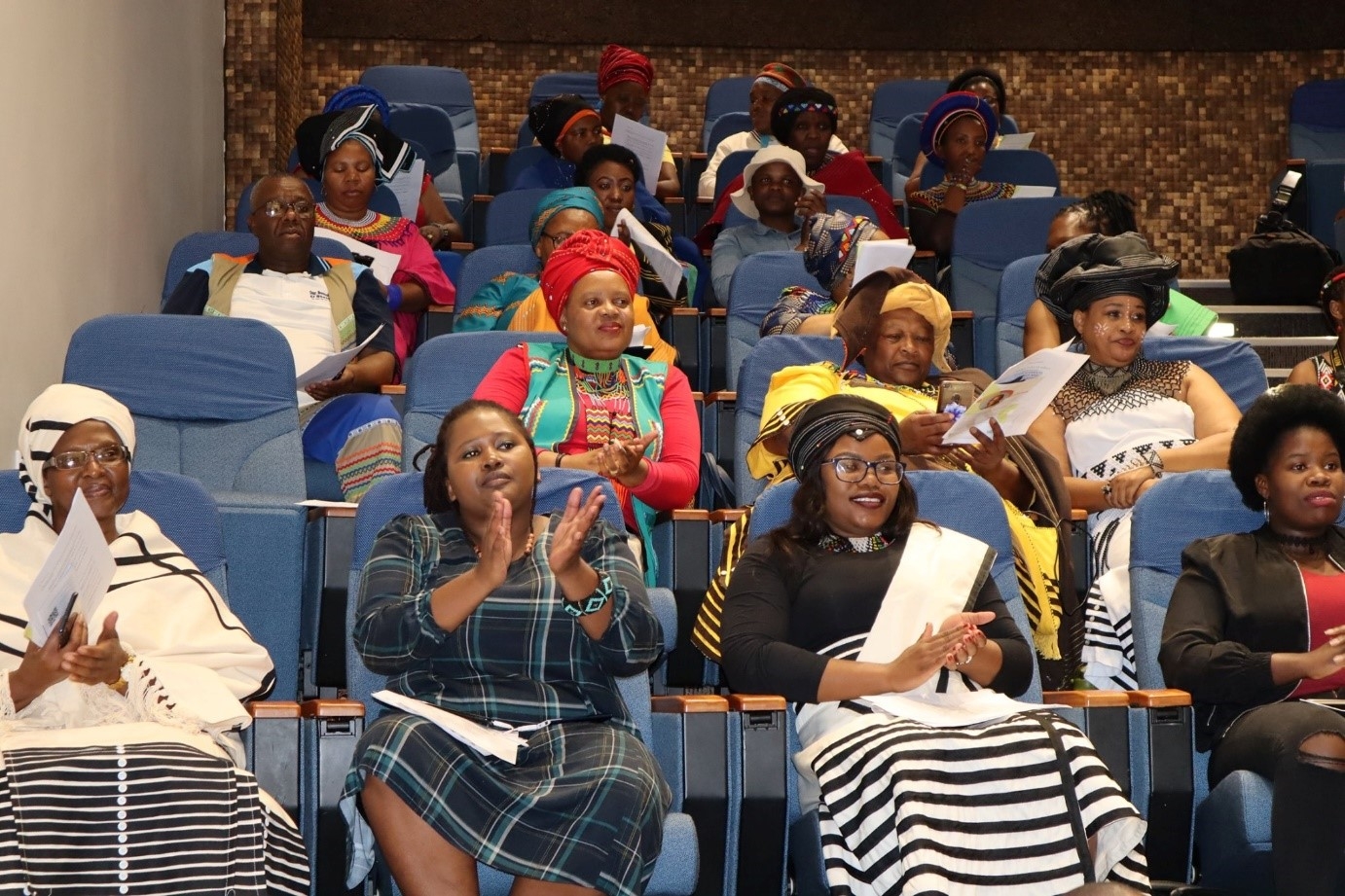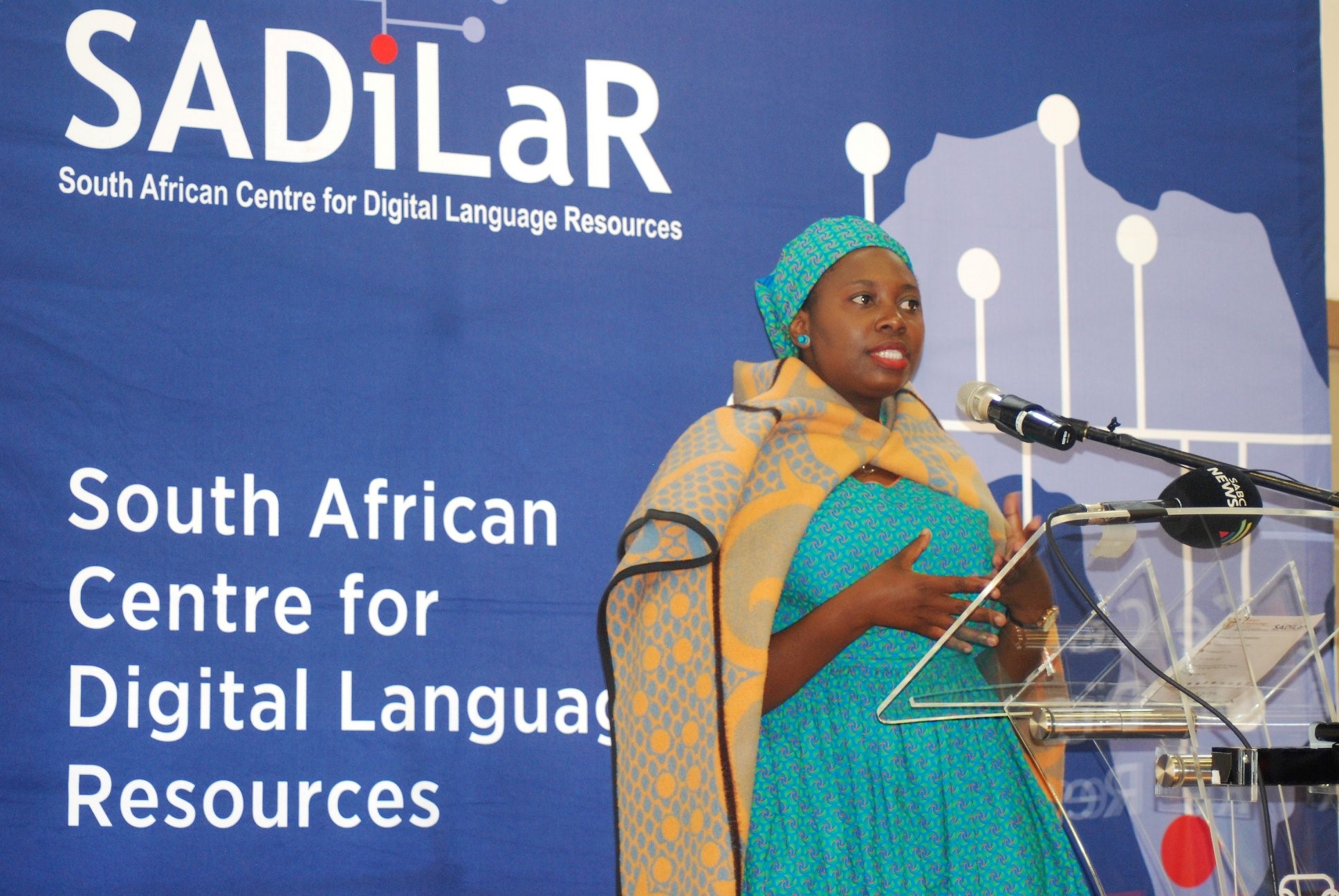Written by Liané van den Bergh
UNESCO declared 2019 the International Year of Indigenous Languages (IYIL2019), which offered an international platform for promoting all indigenous languages, based on five key elements:
- Increasing understanding, reconciliation and international cooperation
- Creation of favourable conditions for knowledge-sharing and dissemination of good practices with regard to indigenous languages
- Integration of indigenous languages into a standard setting
- Empowerment through capacity building and
- Growth and development through elaboration of new knowledge.
The above-mentioned elements fall right within SADiLaR’s mandate to serve South Africa as a research infrastructure to ensure that our indigenous languages are not left behind. At the beginning of 2019 SADiLaR launched its IYIL2019 programme, with a main focus on the eleven official languages of South Africa. The centre dedicated each month of the year to a specific language and celebrated it during the entire month through different channels, such as our social media platforms. However, what had a major impact on our user involvement were the language celebrations that were organised for each language at various tertiary institutions all across the country.

The organisation started with a general call for collaboration that was sent to various universities, language bodies as well as the National Lexicography Units of South Africa to join the centre as a collaborator and to assist in the organisation of the events. Each of SADiLaR’s eleven language researchers were project managers for the events and were responsible to host celebrations at a tertiary institution which supports and offers their language as a field of study. The main idea of the events was to create a platform for academics, researchers, students, and the public to get together and celebrate their mother tongue languages. The following celebrations took place in 2019:
- isiZulu Celebration with 56 participants at the University of KwaZulu-Natal on 1 March
- Sesotho Celebration with 81 participants at the University of the Free State on 19 March
- Afrikaans Celebration with 50 participants at the North-West University (Potchefstroom Campus) on 17 April
- Setswana Celebration with 91 participants at the North-West University (Mafikeng Campus) on 31 July
- Tshivenda, Xitsonga and Sesotho sa Leboa Celebration with 350 participants at the University of Limpopo on 31 July
- isiXhosa Celebration with 80 participants at Rhodes University on 20 September
- Siswati Celebration with 149 participants at the University of Mpumalanga on 24 October
- isiNdebele Celebration with 100 participants at the University of Mpumalanga on 1 November
- South African English Celebration, which took place online due to COVID-19.
As digital humanities and natural language processing are almost unknown within the South African scholars and academics, the main idea of the events were to illustrate how the South African languages have developed and the new avenues that can be explored within the fields of digital humanities and natural language processing. The events also stressed the importance of the latter to ensure that our languages will undergo further development and are thus preserved for future generations.
Each language researcher gave a presentation on SADiLaR as a research infrastructure, with a demonstration of the language resources and tools that are available from the SADiLaR repository and how resources can be downloaded for research purposes. The researchers also demonstrated some of the end-user services/technologies that are available from the SADiLaR website, such as the CTexT NCHLT Web Services and Autshumato Web Services. Lastly, the researchers invited the audience to get in contact with SADiLAR via an open call if they have any research proposals or projects that need funding, or if there is a need for a training workshop in some of the tools or resources.

The programme for each language was unique, with various speakers from different research backgrounds. There was also entertainment in the form of folk dances, poetry readings, singers and much more. For instance, the Setswana celebration, which took place at the North-West University Mafikeng Campus, focused on Setswana in the 21st century. Speakers at the event included the Secretary-General of the South African Mission to UNESCO, Mr Carlton Mukwevho, who spoke on behalf of UNESCO. He focused on the role the organisation is playing towards promoting indigenous languages on an international level. Professor Daniel Matjila, who is the Setswana Language Head at the Department of African Languages at the University of South Africa, gave a presentation on new ways of teaching Setswana literature. Dr Motheo Koitsiwe, who is Acting Director at the Indigenous Knowledge Systems Centre of the North-West University, then spoke about Indigenous Knowledge Systems and the role they play in teaching and learning. Dr Baile Mareme, National Lexicography Unit leader for Setswana, followed this with a presentation on the development of dictionaries, with a specific focus on the Setswana language.